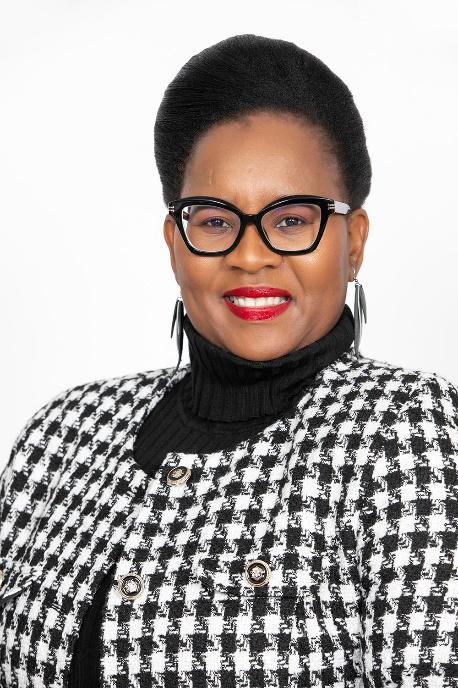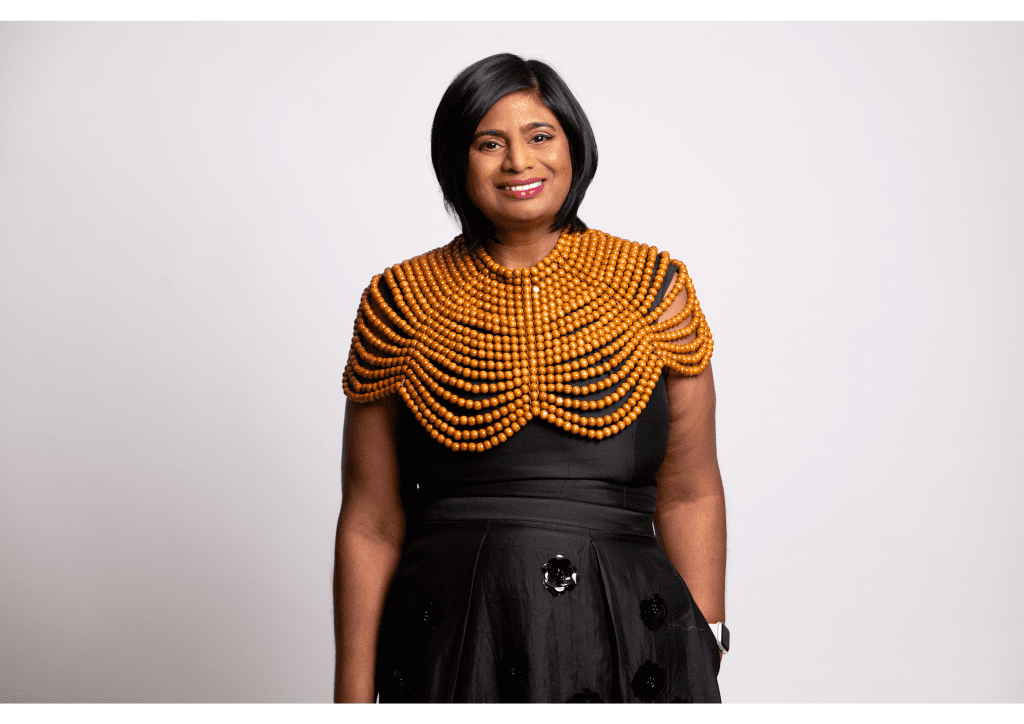Women leaders can help other women in the business world.
When women raise their voices, change is irresistible. Together, we have the power to shape the future of business and society.
For women in today’s organisations, wherever they are in the world, it is more important than ever that we raise our voices and speak our truths – that we tell our stories, and are heard, together.
Growing up in apartheid South Africa, my own voice was shaped by railing against tremendous conditions and challenges that led to my expulsion from school to navigating my own career development in the professional world. In the face of adversity, courage and determination taught me the priceless lesson that, no matter how difficult things may look, we can find ways to deliver change for the better.
It is sometimes easy to feel that our individual circumstances are insignificant. But that both undervalues the worth that every woman holds as an individual and overlooks the strength that lies in a collective. When our stories come together, as part of a greater whole, they come fully to life.
They have the power to help unlock a change that the world urgently needs – creating more true diversity, genuine inclusivity and real equity for women.
For years, women have been working to win greater equality in organisations – and real progress has been made. Global research by Grant Thornton suggests that the number of women in senior leadership roles reached 32% in 2022, up from 21% in 2012.
But that level was only up one point compared to 2021. It is too early to say whether the pandemic has created a window of opportunity to accelerate women’s progress, or thrown up new barriers in the way of women fulfilling their potential in the workplace.
The reality is that women continue to face complex, deeply embedded challenges, and in some cases, new forms of oppression. It is imperative that we continue to work together. The strength of each of us combined enhances the collective strength of us all.
Lift as you rise
One of the most important ideas that women can take with them as they gain seniority is that they have the power to help other women. It’s a simple idea: “We rise by lifting others.”
As women, we can help each other to rise in leadership despite the systematic hurdles we face. When we learn about each other – about women’s lived experiences and how they handled adversity and their own challenges – we can better see solutions to our own problems.
Ayanda Mafuleka is a trailblazing example of this. As CEO of FASSET, Ayanda uses her story to empower young women in the financial sector in both the private and public sector, inspiring others to pay it forward and shape a brighter future for all.
Under her guidance, FASSET partners with IWFSA and Duke Corporate Education to support and empower women in leadership roles along with the generations to come through its impactful Women’s Legacy Programme, using leadership education as the lever for change.
Spotlight
Ayanda Mafuleka
Chief Executive Officer
Born and raised in the vibrant township of Umlazi, Kwa Zulu Natal, South Africa, Ayanda endured the challenges that came with being a black individual in a society grappling with its complex history. The scars of apartheid’s legacy were ever-present, and the inequalities she witnessed served as a catalyst for her unwavering determination to make a difference.
Ayanda relates how she knew from an early age that she wanted to break free from the chains of inequality and uplift her community. Her own life experiences motivated her to create a better future for the generations to come.
Drawing from her own experiences, Ayanda knows the importance of representation and mentorship, especially for women and young individuals facing similar obstacles. She emphasizes the need to create a supportive community for women that encourages mutual growth and collective progress.
Looking ahead, Ayanda wants to reach even more communities and sectors in South Africa. Her goal is to create a network of empowered individuals who will continue to uplift and inspire others, ensuring that the legacy of change endures for generations to come.
Participants have reported newfound confidence, enrolling as mentorship advocates and taking on leadership roles in their communities. Through mentorship and guidance, programme participants are encouraged to become mentors themselves, creating a powerful chain reaction of positive change. Ayanda’s belief in the strength of collective action and solidarity drives her to create a ripple effect that reaches far beyond her own efforts.
Progress is already notable with women occupying 55% of their seats at executive and management levels. FASSET was also one of the recipients of the Honorary Gender Icon Award at the Standard Bank Top Women Awards 2022. This award aims to honour those who have made a significant contribution to gender empowerment in South Africa.
Changing the face of leadership
In the face of ongoing challenges, organisations cannot remain passive spectators. They must stand by women and provide unwavering support, including addressing online abuse, calling out microaggressions, promoting work-life balance, and addressing the additional challenges faced by women of color, LGBTQ women, and disabled women. Ayanda’s story underscores the profound impact of allyship and leadership, urging organisations to set high standards and leaders to step up when it matters most.
Allyship can make all the difference. With the right leader and the right mechanisms, we can get through difficult moments. Organisations need to set the standard – and leaders need to step up when the time comes.
But allyship is, of course, not just about crisis moments. It is about mentorship and sponsorship, supporting women in navigating their careers within our organisations; about finding and seizing opportunities for progression, in being seen as viable candidates for stretch appointments, and so on. I worked at Nedbank for a number of years, where I was fortunate to be mentored by Tom Boardman, the bank’s chief executive.
He shared so many valuable insights with me, not least the importance of never being afraid to give feedback to help others. For me, that is about being truthful. While you may not be considered nice, you will always be respected. He was instrumental in seeing my potential and helping me to see it too – championing me, guiding me and creating opportunities for me to learn and to progress.
Time and again, we have seen that women are empowered only when they challenge established norms and expectations within their cultures. Women are half the world population but remain badly underrepresented in many organisations and especially in leadership. Where gender ratios are skewed, we need to do the work to rebalance them.
And at the same time, businesses can be part of changing dialogues across society about the role of women and the vital contribution that women make to our economies, to the civic sphere and to our lives in their entirety.
Empowering collective change
By championing and supporting our peers, empowering the next generation, and fostering inclusivity, each of us has the power to contribute to the ongoing journey towards gender equality. It is a collective responsibility that requires the efforts of all individuals, regardless of gender, to drive transformative change and create a world where every woman’s potential can flourish.
Your story is a gift, and you may have more power than you realise. By sharing that gift with others, you can help share valuable lessons, inspire others as they navigate their own challenges, and find opportunities to lift others as you rise.
Sharmla Chetty is the Chief Executive Officer at Duke Corporate Education.
















